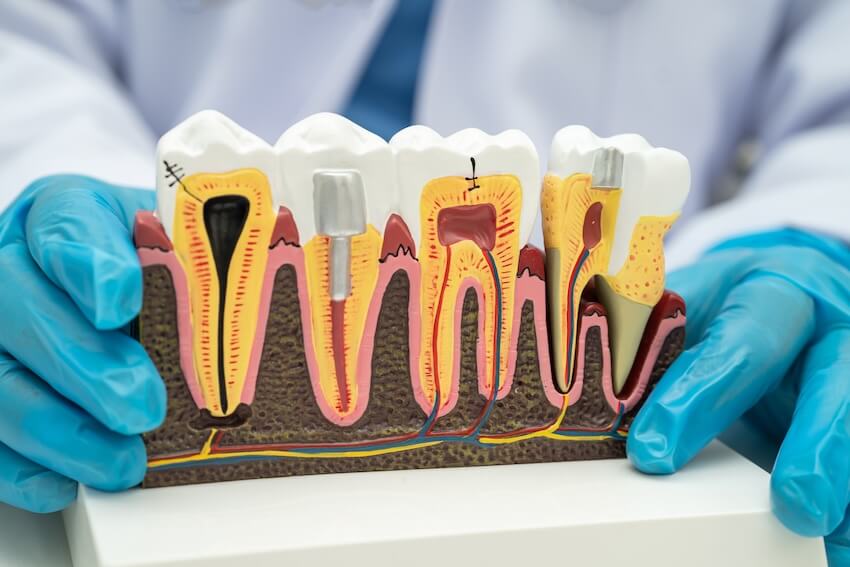
Our dentists perform root canals in Knoxville on a regular basis. This type of endodontic treatment is used to save teeth that would otherwise need extraction. When a tooth gets infected the patient usually has two options: removal or root canal. Of the two, root canals are far better, since natural teeth promote healthy bone in the jaw.
With each root canal, we strive to keep patients as comfortable as possible. And, root canals are a common procedure. Our office alone performs hundreds of root canals each year. Nationwide, the figure is in the millions. That’s millions of infected teeth that have been saved each year. If you’re experiencing tooth pain in the Knoxville area, call our office for an appointment. Whether you need a root canal or not, addressing tooth pain is important.
Millions of infected teeth have been saved by root canals each year.
Why Is a Root Canal Better Than Removing the Tooth?
Removing a tooth leaves a hole in the jawbone. If not replaced with a dental implant, the hole will eventually lead to a weakened, thinner area of jawbone. And, the teeth on either side will shift. This can cause problems with chewing and may even make brushing more difficult.
By saving the natural tooth through root canal treatment, you can avoid those issues. In addition, dental implants often cost more than a root canal. When you have two options, your best choice is to preserve natural teeth.
What Should I Expect During My Root Canal Treatment?
- Application of local anesthetic for your comfort
- Placement of a thin layer of latex to keep your tooth dry
- Creation of an opening in your tooth’s crown, revealing the pulp
- Removal of the pulp (the tooth nerve) from within the crown and and root
- Cleaning and shaping of each root canal to prepare for filling
- Application of anti-bacterial medicine into the pulp chamber and root canal
- Filling and sealing of the root canals with a type of rubber material
- Placement of a temporary filling to keep the root canals bacteria-free
Sometimes, the infection has gone beyond the tooth. In that case, your dentist will prescribe antibiotics. You will be directed to take the full course of antibiotics. Always follow your dentist’s post-root canal instructions fully. If you develop a reaction or adverse symptoms, call our office right away.
Finally, during your last visit, we will remove the temporary filling and place a permanent crown on the tooth. It will protect, strengthen, and beautify your tooth.















